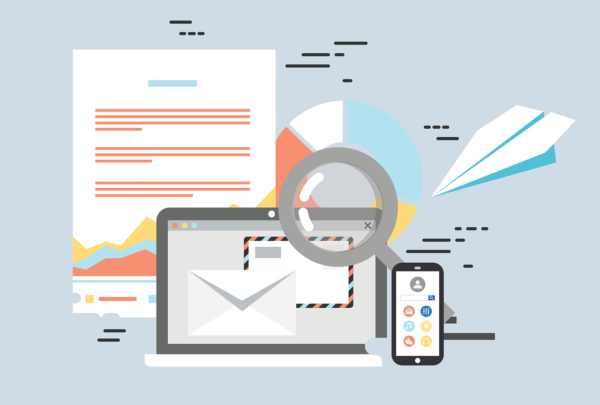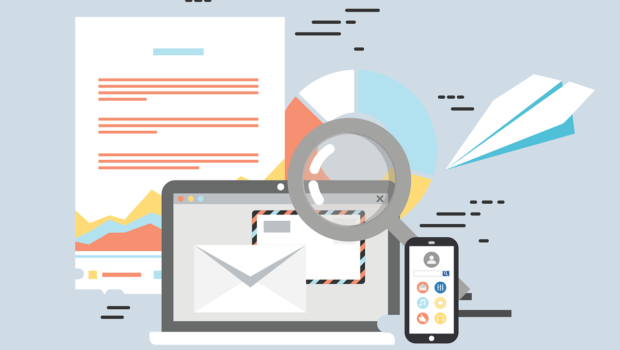How to Effectively Use Direct Mail at Each Stage of Your Customers’ Journey
Direct mail is quickly becoming a rejuvenated form of targeted marketing, as one of the most effective ways to communicate with your customers and prospects today. A recent survey showed that 84 per cent of professional marketers believe that direct mail improves advertising campaign performance.
Like online marketing strategies, direct mail can also be used to target customers on each stage of their buying journey – from brand discovery to retaining satisfied customers. Furthermore, with 56 per cent of people believing that print advertising is more trustworthy, businesses may consider it a far superior way to contact prospects.
Here, we look at the four stages of your customer’s buying journey and how you can use direct mail to progress their buying intentions and remain loyal to your business.
Awareness stage
At the beginning stage in your customer’s journey, they’re discovering that they have a problem and will be searching for the solution.
Fortunately, your business is the best solution to their problem. Unfortunately, the customer may not even know that your business exists. This is the perfect opportunity to use a direct mail service, such as attractive and effective flyers, to introduce yourself to customers and raise awareness of your business.
Direct mail is an incredibly effective way to provide customers with information about your business, especially in comparison to most digital marketing techniques. Research shows that direct mail can be more influential than online techniques. For example, while 94 per cent of people engage with physical mail, only 20 per cent of emails are opened. Furthermore, 41 per cent of direct mail deliveries persuaded people to continue their research into the business that had posted to them.
It’s important to get the awareness stage of your customer’s journey right – your job is to create the foundations of a long-lasting loyalty between the business and the customer.
During this step, you should remember to not be too assertive – give the customer the information that they need with a small call to action. This should arguably be a small push to visit your website. Did you know that 64 per cent of people have visited a website because of direct mail they have received? Therefore, you should send mail out frequently. It’s important to maintain exposure, particularly during this early stage where you’re trying to raise awareness for your company. Targeting a smaller pool of people more frequently will be more effective than a larger pool of people once.
The utility of your mail is important when in the awareness stage, so making your mail less advertorial is key. For example, tips and tricks relating to your business will establish your organisation as helpful and authoritative. For example, a landscaper may send out gardening tips, or a gym may produce ideas on how to stay healthy.

Consideration stage
When your customer reaches the consideration stage, they’ve realised what their problem is and are beginning to research what exactly can be done to fix it. The customer knows your business, but now they want to know about your products and services and how your business can benefit them.
This is the stage where your customers want relevant information. Direct mail can help save them the research.
When using direct mail during the consideration stage you must provide relevancy. This is your opportunity to demonstrate how you can solve the problem through your product or services. How can a landscaper create the perfect garden space? How specifically can a gym help you to get healthy?
According to one survey, 53 per cent of people believe that the communication that is relevant to their needs is the most influential form of communication. You’re asking customers to take considerations seriously during this stage.
You can make this stage effective through several different campaign methods with direct mail, including the use of coupons to drive customers to return to your website. Personalised mail is also essential to show that you appreciate customers for their interest in your business.
Conversion stage
At this stage in the customer’s journey, they’re ready to decide on what to buy and who to buy it from. Your job is to ensure that the customer knows that you are the best option above all the competition.
To achieve this, you must guarantee that your customer knows that you can fulfil their needs. This stage requires you to be more assured and assertive, highlighting exactly what you can do, how you will do it, and the cost of your product or service.
With direct mail, you can tailor your marketing to target products and services to the people you know are more inclined to accept your offers. Therefore, it’s important to remind people that you are a trustworthy business. Highlighting strong reviews and affiliations with certified organisations remind people that your service or product will achieve what you promise.
Retention stage
After you have secured your customer, the next phase of this journey is to ensure that they will return to your business in the future. The customer will reflect on their experience with your product or service and measure how resolved they feel with what your business has achieved.
It’s important to remain engaged with your past customers. Research shows that after one purchase, consumers have a 27 per cent chance of returning to your store. Beyond this, three-time customers are 54 per cent likely to continue returning.
This retention can be achieved through direct mail by maintaining contact with your customers. Direct mail is a non-invasive way to communicate with customers after they’ve finished their buyer’s journey.
Customer loyalty can be created by creating mail that appeals to individuals. Throughout the buyer’s journey, you will have understood how your customers operate. When did they buy? Which offers best appealed to customers? Using this information with your direct mail strategy is essential to encourage customers to return to your business.
Posting direct mail with these offers during periods when you know customers are more likely to engage with your content. By using their name on the letterhead or envelope, for example, direct mail can create the impression that your business is providing individual members with exclusive offers.
Direct mail is unique in that it allows you to track your customers on every stage of the buyer’s journey. Understanding how your customer will react to your direct mail at each stage is also important, as you allow your brand to grow with their needs and awareness of your product and services. If you want to grow your business and its effectiveness in reaching customers, direct mail is an essential move towards reaching customers at every stage in their journey.
Sources:
- https://www.wdmonline.co.uk/services/mail/
- https://martechseries.com/sales-marketing/marketing-automation/report-84-of-marketers-state-direct-mail-improves-multichannel-campaign-performance/
- https://theagencyltd.net/the-new-direct-mail/
- https://www.marketreach.co.uk/sites/default/files/RM_MarketReach_Physically_Irresistible_0.pdf
- https://neilpatel.com/blog/actually-use-direct-mail/
- https://www.marketingcharts.com/brand-related-45853/attachment/epsilon-consumers-most-influential-communication-types-sept2014
- https://www.bakergoodchild.co.uk/utilise-direct-mail-each-stage-marketing-funnel/









![The Most Important Elements on the Product Details Page [Infographic]](https://technofaq.org/wp-content/uploads/2017/02/The-Perfect-Product-Detail-Page-Infographic-150x150.jpg)

![11 Modern Marketing Skills [Infographic]](https://technofaq.org/wp-content/uploads/2018/12/11-Modern-Marketing-Skills-for-Business-Innovators-to-Master-150x150.png)





